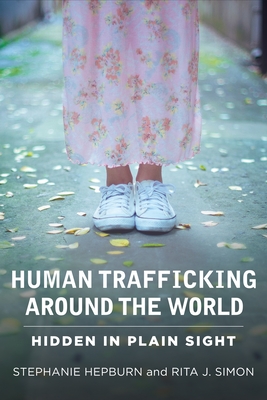
description
rafficking, forced labor, organ trafficking, and sex tourism across twenty-four nations highlights the experiences of the victims, perpetrators, and anti-traffickers involved in this brutal trade. Combining statistical data with intimate accounts and interviews, journalist Stephanie Hepburn and justice scholar Rita J. Simon create a dynamic volume sure to educate and spur action. Hepburn and Simon recount the lives of victims during and after their experience with trafficking, and they follow the activities of traffickers before capture and their outcomes after sentencing. Each chapter centers on the trafficking practices and anti-trafficking measures of a single country: Australia, Brazil, Canada, Chile, China, Colombia, France, Germany, India, Iran, Iraq, Israel, Italy, Japan, Mexico, Niger, Poland, Russia, South Africa, Syria, Thailand, the United Arab Emirates, the United Kingdom, and the United States. Examining these nations' laws, Hepburn and Simon reveal gaps in legislation and enforcement and outline the cultural norms and biases, societal assumptions, and conflicting policies that make trafficking scenarios so pervasive and resilient. This study points out those most vulnerable in each nation and the specific cultural, economic, environmental, and geopolitical factors that contribute to each nation's trafficking issues. Furthermore, the study also highlights common phenomena that governments and international anti-traffickers should consider in their fight against this illicit trade.
member goods
No member items were found under this heading.
listens & views

ULTIMATE CHRISTMAS ALBUM 5 / ...
by ULTIMATE CHRISTMAS ALBUM 5 / VARIOUS
COMPACT DISCout of stock
$19.75
Return Policy
All sales are final
Shipping
No special shipping considerations available.
Shipping fees determined at checkout.






